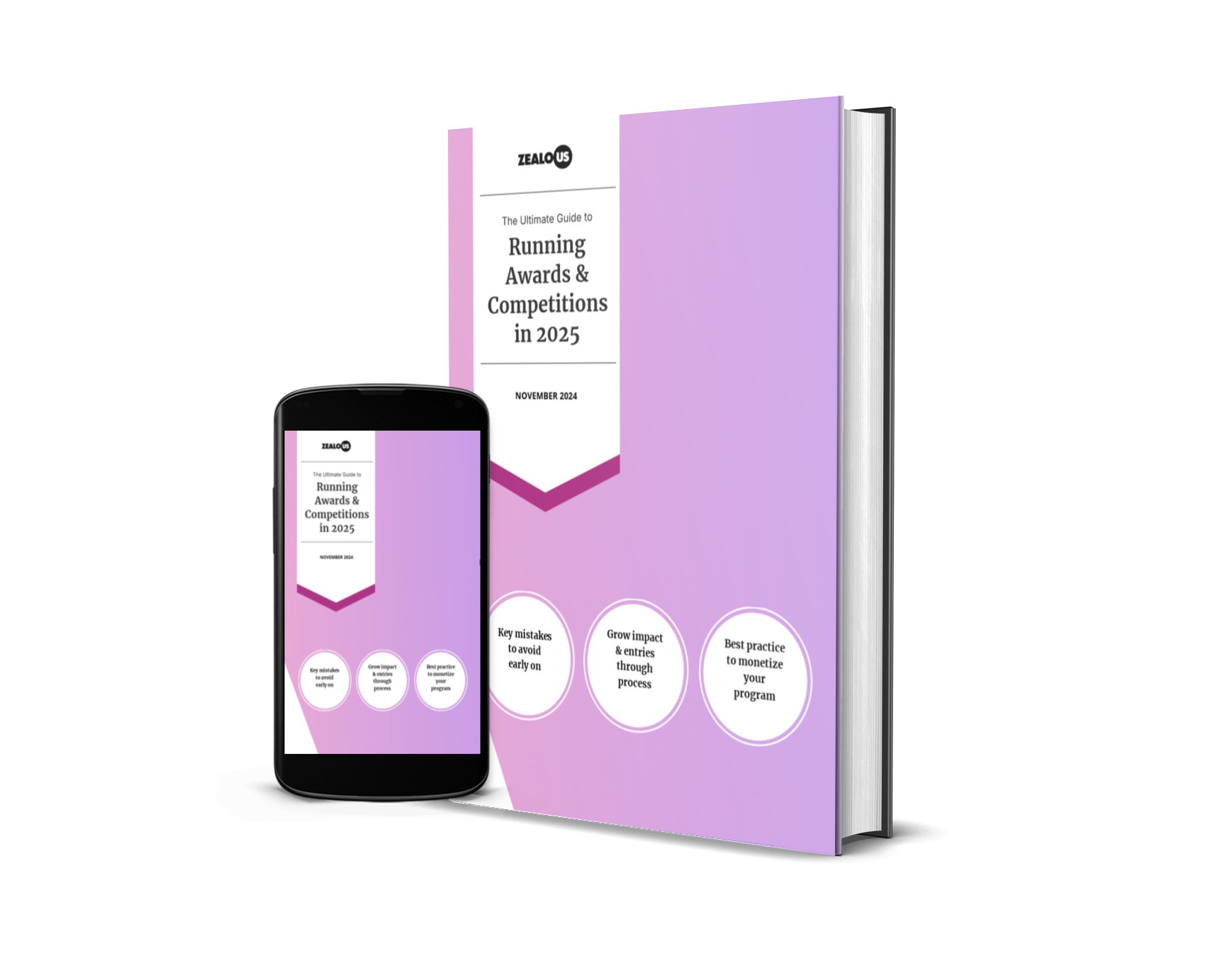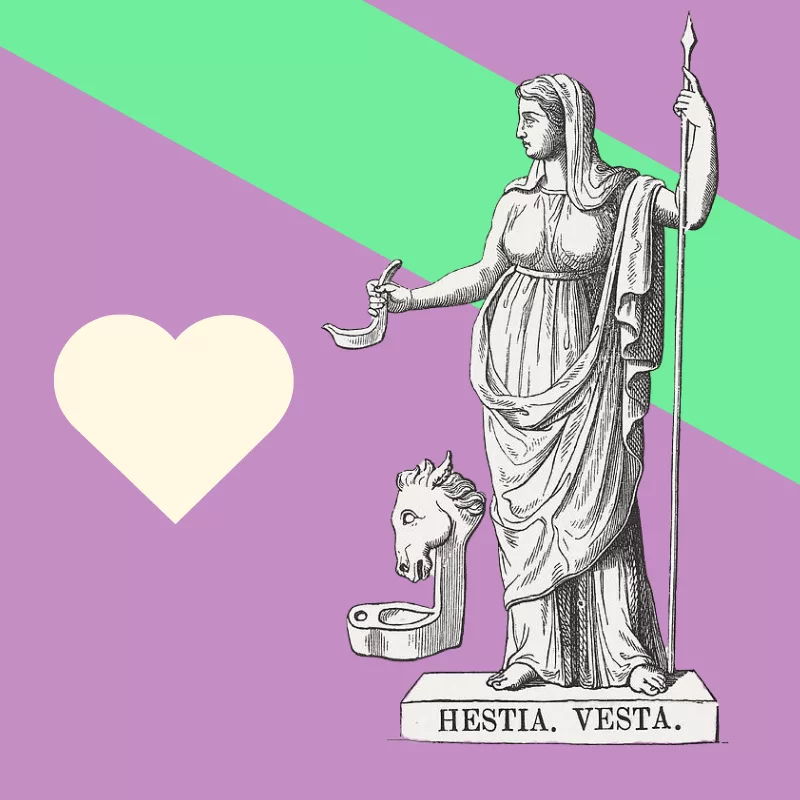This article covers:
- What perks are and how to structure them
- Creating valuable perks without spending money
- What awards actually cost: Real numbers
- Lead with your strongest perk
- Proving your perks are legitimate
- Matching application effort to reward value
- Common perk mistakes to avoid
- Measuring which perks actually work
What makes someone spend two hours perfecting an application? They aren’t doing it for nothing! The perks need to be worth it.
Knowing what you’re offering those selected for your competition is key. Perks can be made up of a mix of any of the following:
The building blocks
- Money (e.g. £12,000 of prize money to be won)
- Space (e.g. Get your art on the walls of the Tate)
- Resources (e.g. Get a free week of ARRI Alexa to hire)
- Kit (e.g. Win a tablet)
- Prestige (e.g. Have your work seen by Yinka Shonibare)
- Exposure (e.g. Get featured to our 1,000,000 strong audiences on Instagram)
- Experience (e.g. Have your portfolio reviewed by our creative director)
- Purpose (e.g. Make a case for the importance of gender diversity)
- Time (e.g. Takes 5 minutes to submit)
These aren’t ranked. What matters is understanding which ones your specific audience actually values.
Fostering diversity & inclusion
Be aware of the needs of the community you aim to serve. Some of the perks above will be of no value to them if they can’t access them (e.g. space that’s too far from home, or opportunities that require additional travel expenses they can’t afford).
Creating valuable perks without spending money
When we think of rewards, we tend to think about money. This isn’t the case. You can absolutely run a competition on a very tight budget by offering alternative rewards.
Have a think about everything you already have available to you. Is it a link to a high profile artist who could give you an hour of their time? Is it unused space or kit you have? Do you have a good social media following (it doesn’t have to be large, it might be high-value individuals who buy art)? It could also be free tickets, feedback on a portfolio, or kit from your shop.
Everyone has something they can offer. Being creative and putting together a list will allow you to discover the value your organisation already holds without spending any money.
Hidden value in what you already have
Here’s the thing: a one-hour portfolio review from a respected curator might cost £150 commercially but only costs you time. Exhibition space worth £2,000 in rental value becomes a zero-cost perk if you already have the venue. That’s real value you’re creating from existing resources.
Not sure what to gather during applications? Understanding what to ask for during submissions helps you create value through feedback and portfolio reviews without additional costs.
Fostering diversity & inclusion
Again, knowing the needs of the community is key. Money is agile and allows winners to buy what they need. But what they might need is training, mentorship, or access to networks that money can’t easily buy.
What awards actually cost: Real numbers from the sector
Let’s talk actual figures, because vague promises help no one.
Small community awards often offer £500-£2,000 in total prize value. Regional creative competitions typically sit around £3,000-£8,000. National awards? We’re looking at £5,000-£20,000+. But here’s what matters more than the raw numbers: context.
The Jerwood Arts awards offer around £30,000 but receive 800+ applications because they’re established and highly prestigious. A new award offering £3,000 with strong mentorship from industry leaders might receive 400 quality entries because emerging artists value the career development.
Exhibition space adds real value too. A month-long show in a London gallery could represent £2,000-£5,000 in rental costs. Professional photography of artwork for portfolios? That’s £500-£1,000 saved.
Mentorship from established professionals? Price it at their consultancy rate (often £100-£200 per hour).
Quick calculation
Calculate your perks honestly. Add it all up. If you’re asking for a 90-minute application and you’re targeting freelance creatives earning £30/hour, you’re asking for £45 worth of their time. Your total perk value should meaningfully exceed that opportunity cost. Otherwise taking on paid work makes more economic sense.
Download launch checklist
Never miss a critical step: 300+ tasks across 8 phases, from securing judges to winner announcement.
Lead with your strongest perk
Answering “What’s in it for me” as quickly as possible in your communications is key to getting candidates to engage further.
If you have many perks, list them in order of most valuable to least valuable and focus on the top one when pitching your opportunity. Cramming too much into your pitch makes it difficult for candidates to digest the information and take action. Candidates will discover the others once you’ve caught their attention.
There’s an exception. When advertising your call on social media, you can mention different perks, but mention only one perk per post. This keeps your content fresh and allows you to gain better traction by advertising certain perks to certain audiences.
Effective marketing for your competition means putting the right message in front of the right people at the right time. Sometimes that means leading with prize money for one audience and mentorship opportunities for another.
When to announce perks and build momentum
Don’t blow all your ammunition at once.
Announcing your headline prize at launch creates initial buzz. But what keeps momentum going through a 12-week submission window? Phased perk reveals.
Save your high-profile judge announcement for Week 3 when initial excitement starts to wane. That creates a second wave of attention. Add an unexpected bonus perk at Week 6. Mention early bird pricing closing soon at Week 8. Each announcement is a marketing opportunity that maintains visibility.
Real example
The Art Prize announced their £10,000 prize at launch, then revealed renowned judge Grayson Perry at Week 3, then unveiled exhibition space at the Tate at Week 6. Each announcement maintained momentum, with submission spikes following each reveal.
Want to structure your timeline properly? Crafting the perfect open call timeline helps you map out these strategic moments.
Prove your perks are legitimate
Exposure means nothing. Just like money means nothing. Each one of your perks needs to be defined in enough detail to ensure candidates see the value of what you have to offer.
Can be improved
“We will give you exposure!”
Better
“Your work will be exclusively featured to 24,000 UK based art collectors who have previously purchased work from our platform.”
Find ways to prove what you have to offer is true:
- Ask judges to tweet their involvement from their personal accounts
- Link to analytics screenshots showing real follower demographics
- Add readership statistics (with sources)
- Publish testimonials by past winners with specific outcomes
- Show documentation from previous exhibitions or showcases
If you are not already established, you will need to go that extra mile to prove you can hold true to your promise. Telling candidates you will feature them to thousands of potential buyers when your social media following doesn’t reflect your promise will lead to candidates losing trust. And they’ll be vocal about it.
Candidates will do their due diligence, so don’t be tempted to cut corners.
It’s better to under-promise and over-deliver.
Proving your worth will become less important as you run more opportunities, but be sure to capture testimonials from winners as soon as your call ends to include them in future opportunities and galvanise your credibility.
Modern awards platforms allow you to track exactly when and how perks are delivered, creating accountability that builds trust with future applicants. Documentation isn’t just good practice – it’s proof for next year’s candidates that you deliver on your promises.
Fostering diversity & inclusion
Being clear at the onset means candidates are clear on the outcome. The last thing you want to do is disappoint a community which is already feeling hardship. They will never submit again, and they’ll warn others away too.
Want more articles like this?
Give this one a like
Match application time to prize value
The rule of thumb is the more valuable your rewards are, the more thorough your application process can be.
If you can’t offer much, make submitting as quick as possible.
However, giving valuable rewards shouldn’t excuse you from making the application process as simple as possible. Do review the information you require from candidates and trim it down.
Here are some working benchmarks from successful programmes:
- Applications under 15 minutes can succeed with perks valued around £500-£1,000
- Applications taking 30-45 minutes typically need £1,500-£3,000 in total value
- Complex applications (1-2 hours) need £2,000+ to feel worthwhile
These aren’t rules. They’re observations. Your specific audience might value things differently. Survey data consistently shows that candidates abandon applications when effort doesn’t match perceived reward.
Fostering diversity & inclusion
Time-poor candidates will not take a risk on applying. Shrink your process as much as possible, and be sure to let candidates know how long applying will take at the onset. A parent working two jobs can’t spend three hours on speculation.
Beyond winner-takes-all
You might want to consider alternative structures to having just one winner. This could mean rewarding your shortlist or the runners-up. Even small things like feedback on their work, or featuring the 10 best, could be invaluable.
Winner takes all leaves many with nothing.
You could even use that as a way of marketing your own services – offering a free coffee in your shop for taking part, or 25% off in your store. You might even be able to engage with other local brands who might see what you’re doing as valuable to them (free marketing). Why not reach out and see if they would be happy to offer a discount on their kit for all candidates?
Consider how you’ll communicate outcomes to all participants, ensuring even non-winners feel valued.
Fostering diversity & inclusion
You cannot support a whole community by giving only one person a reward. Try to find how else you can create value for some of the others. This is especially important for underrepresented communities who need to see that participation has value beyond winning.
Rewarding a public vote: Proceed with caution
Some opportunities reward a candidate based on a public vote. This is a great way of creating engagement with communities and getting exposure to your brand.
When doing that, be mindful of what you offer the public vote winner. Giving a large amount of money is likely to lead to foul play.
Watch out for fraud
Although you can identify some types of fraud, it doesn’t cost much to buy votes from click farms. Click farms can deliver 10,000 votes for under £50, making any prize over £500 a potentially profitable fraud target.
Offering large cash prizes is likely to inspire some to go that route. However, alternatives to cash are likely to stop this practice. Click farms don’t accept exposure, experience, or exhibition opportunities as payment.
Professional-grade voting systems now include IP tracking, email verification, and anomaly detection as standard features, making fraud significantly harder while keeping the experience simple for genuine voters.
Additional fraud prevention tactics:
- Require email verification before voting
- Limit votes per person per day
- Monitor for suspicious voting patterns (sudden spikes, geographical clusters)
- Consider weighting public vote as only part of the final decision
- Be transparent about anti-fraud measures in your terms
Fostering diversity & inclusion
Giving the public vote to those who can afford to pay to cheat is bound to put people off engaging with the competition. Making sure there is no monetary incentive to cheat the system creates a more equitable system.
Insights like these straight to your inbox
Receive weekly tips from our founder to grow your program’s impact; regardless of what tools you use.
Supporting everyone who participates
What about all those that were not selected?
It’s impossible to reward everyone, but it isn’t impossible to make everyone feel valued.
Make sure to email everyone who took part and remind them of your appreciation for them taking part. A little empathy goes a long way in building a relationship with those you serve and is likely to inspire them to submit again to your next opportunity.
The best programmes use structured communication workflows to ensure every participant receives timely, personalised messages. Automated yet authentic communication at scale isn’t just possible – it’s becoming the standard candidates expect. Learn more about crafting commiseration emails that maintain relationships rather than burning bridges.
Fostering diversity & inclusion
For communities used to being overlooked, the feeling of rejection might be felt deeply and will stop them from trying in the future. If you really want to help a community, you have a duty of care towards them. Make sure they know they are valued regardless of the result.
Common perk mistakes to avoid
We’ve all made these mistakes. Some of us are still making them. Here’s what to watch for:
Vague exposure promises without proof
“Exposure to thousands” means nothing if you can’t demonstrate who those thousands are and whether they’ve ever bought art, hired talent, or offered opportunities before.
Prize money that doesn’t cover next steps
Offering £500 when your winners need £2,000 to attend the industry conference where the “real” opportunity exists just highlights what they can’t afford.
Perks with geographical limitations buried in fine print
Announce upfront if your exhibition is in London only, or if studio space is in Manchester. Don’t let candidates invest time only to discover they can’t access what they’ve won.
Over-promising judge involvement
Saying winners will “work with” a high-profile judge when they’ll actually get a single 30-minute call isn’t working with them. It’s a brief conversation. Be specific.
Offering perks that require additional expenses
Free exhibition space is fantastic. Unless winners must pay for shipping, framing, insurance, and opening night catering. Suddenly your “free” perk costs them £800.
Measuring which perks actually drive submissions
You’ve structured your perks, but how do you know what’s working? The most successful programmes treat each opportunity as an experiment, gathering data to improve future calls.
Survey your entrants during or immediately after submission. Ask: “Which perk was most important in your decision to apply?” Don’t assume you know. Emerging artists might prioritise mentorship over money, while established creatives might value peer recognition above all.
Track which marketing messages generate the most engagement. If your social post emphasising exhibition space gets triple the clicks of your post about prize money, you’ve learned something valuable about your audience’s priorities. A/B testing different perk emphases in paid advertising can reveal these preferences quickly.
Analyse submission patterns around perk announcements. When you revealed your high-profile judge, did submissions spike? When you added early bird pricing, did behaviour change? Leading competitions now track which perks drive applications through their submission platforms, allowing organisers to refine their offerings based on real behaviour data rather than guesswork.
The data you gather this year becomes your roadmap for next year. Perhaps you discover your audience values feedback more than exposure, or that they respond better to specific monetary thresholds. Use these insights to refine your perk structure, making each programme more effective than the last.
Fostering diversity & inclusion
Different communities value different perks. Survey data disaggregated by demographic helps you understand whether your current structure works equally well for all groups or inadvertently favours some over others.
Finally
Clear perks attract more submissions. Meaningful perks create advocates. And advocates? They build your programme’s reputation faster than any marketing budget could.
The success of your opportunity is pegged to creating value for the audiences you serve. It doesn’t have to be expensive, it doesn’t have to WOW (unless you want to generate PR with it), but it has to be of value to those who submit.
Making sure candidates know what they get if they win allows for more submissions, and will have a more positive impact on winners once they are selected. This puts you in a good position to build positive brand recognition and scale your ambition with future call-outs.
Managing multiple perks, communications, and participant relationships becomes easier with proper submissions management. You’ve got enough to think about without drowning in spreadsheets.
We can help!
Zealous makes running your programmes easier
But we’re not alone in the space – here are 8 others you may wish to consider (even if we would prefer you choose us!).
Want us to write more content like this? Give it a like
Share

Guy Armitage is the founder of Zealous and author of “Everyone is Creative“. He is on a mission to amplify the world’s creative potential.
Frequently Asked Questions
How much prize money should I offer for an award?
There’s no universal amount, but context matters. Small community awards often offer £500-£2,000, while national creative awards typically range from £5,000-£20,000. Research similar opportunities in your sector and consider what’s meaningful to your audience. Remember that £1,000 might be transformational for an emerging artist but underwhelming for an established professional. The key is ensuring your prize money aligns with the effort you’re asking candidates to invest.
Can I run a successful competition without offering money?
Absolutely. Many successful programmes offer zero cash prizes and thrive by providing valuable alternatives like exhibition space, mentorship, industry connections, or professional development opportunities. The trick is understanding what your specific audience values most. Emerging creatives often prize exposure and portfolio building over cash, while established professionals may value peer recognition and industry credibility more than monetary rewards.
How do I prevent fraud in public voting competitions?
Avoid large cash prizes for public vote categories, as this creates financial incentive for click farm fraud. Instead, offer non-monetary rewards like exhibition space, mentorship, or exposure that can’t be easily monetised. Monitor voting patterns for suspicious spikes, require email verification, and consider implementing IP tracking. Some platforms allow you to limit votes per person per day. Remember that even with safeguards, public votes with significant monetary prizes remain vulnerable.
Should I reward runners-up or just the winner?
Rewarding beyond the winner creates more value for your community and encourages future participation. Consider offering runners-up feedback on their work, featuring their submissions on your website, or providing small prizes like shop discounts or professional development resources. This approach transforms your competition from a “winner takes all” model to a programme that genuinely supports multiple participants. It’s particularly important for diversity and inclusion, as underrepresented communities need to see value beyond a single winner.
How do I prove my perks are legitimate to first-time applicants?
Publish testimonials from past winners with specific outcomes they achieved. Link to evidence like readership statistics, past exhibition documentation, or social media follower counts. Have judges or partners publicly confirm their involvement on their own channels. Be specific about numbers and deliverables rather than vague promises. If you’re new and lack testimonials, start with modest, easily provable promises and over-deliver to build credibility for future opportunities.
What’s the right balance between application effort and reward value?
As a rule of thumb, candidates should feel the potential reward justifies the time investment. For a 5-minute application, modest perks are acceptable. For applications requiring portfolio reviews, written statements, and references (1-2 hours), you need substantial rewards. Survey your target audience to understand what they consider “worth it.” Time-poor candidates, particularly those from underrepresented communities, won’t risk hours on uncertain outcomes unless the potential reward is genuinely meaningful.
How many different perks should I offer?
Focus on 1-3 substantial perks rather than diluting value across many small ones. When marketing your opportunity, lead with your most valuable perk to capture attention quickly. You can mention others in longer-form communications, but overwhelming candidates with too many perks in your initial pitch makes it harder for them to understand and remember your value proposition. The exception is social media marketing, where you can feature different perks in separate posts to keep content fresh and target different audience segments.











